|
Heritage Cutter is the parent company to the iconic metalcutting industry names Brubaker, Data Flute, Decatur Diamond and Weldon Tool each with their own specialization in cutting tools Written & edited by Bernard Martin Heritage Cutter is the parent company to the iconic metalcutting industry names Brubaker, Data Flute, Decatur Diamond and Weldon Tool. Each of these companies names reflect their longstanding reliability, quality and commitment to industry has made them a trusted source to distributors and manufacturers for generations. Each of these companies has had a niche place in the market as well as some product overlap over over the last few decades. In order to clarify where each brand fits under the Heritage Cutter umbrella, and to set a strategic outlook, Heritage Cutter has outlined the speciality areas that each of the brands it taking moving into the future. Data Flute: Pioneering High-Performance Carbide Round Tools Since 1976Data Flute, a distinguished brand under the Heritage Cutter umbrella, has been a stalwart leader since its inception in 1976. Known for its unwavering commitment to excellence, Data Flute has carved a niche as a premier designer and manufacturer of both standard and special high-performance solid carbide cutting tools. The mantra, "The most demanding machinists demand Data Flute!" encapsulates the brand's dedication to meeting and exceeding the expectations of machinists who demand nothing but the best. Over nearly five decades, Data Flutee has established itself as a trusted name synonymous with high-performance, application-specific carbide cutting tools. Data Flute's product portfolio is a testament to its expertise, offering a comprehensive range of carbide round tools meticulously crafted to cater to diverse machining needs. From end mills tailored for aluminum and non-ferrous alloys to those designed for steel and ferrous alloys, Data Flute's offerings span roughing, semi-finishing, and finishing applications.The brand goes even further with its CVD Diamond Coated Tools, encompassing routers, end mills, and drills, showcasing its commitment to cutting-edge technologies. Additionally, Data Flute provides specialty tools and miniature end mills, catering to intricate and specialized machining requirements. The cornerstone of Data Flute's success lies in its state-of-the-art manufacturing facility in Pittsfield, MA. This facility serves as the epicenter of innovation, housing not only the manufacturing operations but also the brand's R&D machining test center and customer support. This consolidated setup enables Data Flute to provide a seamless experience to its customers, ensuring that design, testing, and support are all under one roof. At Data Flute, the commitment extends beyond the production line. The brand is dedicated to high-performance machining, a philosophy reflected in its comprehensive suite of tools, factory support, and field support. The team at Data Flute is driven by a shared desire to collaborate with customers, understanding their unique challenges, and working together to maximize cutting tool productivity. Brubaker: Brubaker Tool: A Legacy of Excellence in Taps and Threading Products Since 1881For over 140 years, Brubaker Tool, a distinguished member of the Heritage Cutter family, has been a cornerstone in the industry, proudly serving with high-performance, special, and standard taps & threading tools. Established in 1881 in Millersburg, PA, Brubaker Tool began its journey by supplying taps to the burgeoning railroad industry, laying the foundation for a legacy that has endured for over a century. The commitment to excellence is etched in the very fabric of Brubaker Tool. With a wealth of experience, the brand has evolved to become a leading source of American-made industrial cutting tools. Over the years, Brubaker has built upon its enduring stability, reliability, and unwavering commitment to quality, earning its status as a trusted source for distributors and manufacturers for generations. Brubaker Tool's extensive product offerings include an array of high-performance taps, showcasing versatility and precision. From spiral flute, spiral point, straight flute, forming, to carbide taps, Brubaker Tool caters to the diverse needs of the industry. The brand also specializes in pipe taps, covering NPT, NPS, interrupted thread, and short projection variations. General-purpose taps, including spiral flute, spiral point, straight flute, forming, and STI, further demonstrate Brubaker's dedication to meeting the threading requirements of various applications. Carrying the torch of tradition into the modern era, Brubaker Tool continues to innovate with carbide thread mills, available for special orders, showcasing the brand's adaptability to evolving industry needs. Despite the significant changes witnessed over the last 140 years, Brubaker Tool's steadfast commitment to providing the finest taps and threading tools remains unwavering. The brand's long-standing stability, reliability, and quality have positioned it as a reliable partner in the ever-evolving landscape of industrial cutting tools. Brubaker Tool's legacy is not just a chronicle of the past, but a testament to its enduring commitment to excellence. With a rich history and an eye on the future, Brubaker Tool remains a trusted name, embodying the values of stability, reliability, and quality that have defined it for over a century. Weldon: Blending Tradition and Innovation in Quality Cutting Tools Since 1918In the specialized tapestry of Heritage Cutter's family of companies, Weldon Tool stands as a beacon of craftsmanship, quality, and a commitment to customer service that has endured since its founding in 1918. Rooted in a legacy that spans over a century, Weldon Tool has evolved into a trusted source for quality high-speed steel (HSS), cobalt, and carbide round tools, with a distinct emphasis on engineered specials. From its humble beginnings as a two-man shop in downtown Cleveland, Ohio, Weldon Tool has grown into a powerhouse, designing, manufacturing, and delivering a diverse range of cutting tools. The original dedication to craftsmanship and quality that marked its inception remains a constant thread woven into the fabric of the company. Weldon Tool's product offerings reflect a comprehensive understanding of the diverse needs of the industry. The range includes HSS, cobalt, and CPM end mills for both roughing and finishing applications, underscoring the brand's commitment to versatility. Carbide end mills designed for ferrous and non-ferrous materials showcase Weldon's expertise in adapting to evolving machining requirements. Specialty tools such as countersinks, hole saws, and core drills further demonstrate the brand's dedication to providing a holistic solution for cutting challenges. Weldon Tool's focus on engineered to order solutions, including end mills, round tools, and other specials, positions it as a go-to partner for those seeking customized cutting tools. For the past two decades, Weldon Tool has been co-located with Brubaker Tool in Millersburg, PA, reflecting a strategic alignment within the Heritage Cutter family. The synergy between these companies has not only provided operational efficiency but has also allowed Weldon to maintain its traditional commitment to quality while embracing the demands of modern manufacturing. In many ways, Weldon Tool represents a harmonious blend of the old and the new. While remaining steadfast in its dedication to traditional end mills and specialty products in HSS, cobalt, and CPM, Weldon is simultaneously steering towards the future with a pronounced focus on custom tools and engineered specials. This forward-looking approach ensures that Weldon Tool continues to be a dynamic force in the cutting tool industry, adapting to the ever-changing needs of its customers and the evolving landscape of precision machining. Decatur Diamond: Your Trusted Source for Diamond and PcBN ToolsNestled within the Heritage Cutter family of companies, Decatur Diamond is the home of innovation and expertise in diamond-based cutting tools. The brand's lineage is intricately tied to some of the earliest adoptions of diamond-based technologies in the cutting tool industry, showcasing a history marked by success and innovation. Under the banner of "When every cut counts, count on Decatur Diamond," this brand is dedicated to delivering diamond and PcBN-based cutting tools. With a comprehensive range covering indexable milling cutters, fixed pocket brazed tools, complex monobloc solutions, and CVD diamond-coated tools. At the forefront of Decatur Diamond's contributions is the Ultra-Mill, an early and remarkably successful indexable platform for diamond tools. This innovation underscored the brand's commitment to pushing the boundaries of what was possible in the realm of cutting materials. Similarly, the DIAbide line emerged as one of the original CVD diamond carbide round tool brands, solidifying Decatur Diamond's reputation as a trailblazer in the industry. As the landscape of cutting tools evolved, so did Decatur Diamond's portfolio. The addition of fixed-pocket brazed tools and complex monobloc solutions further expanded the brand's capabilities, offering a comprehensive suite of options to meet the diverse needs of precision machining. Decatur Diamond not only focuses on advancing technology but also places a significant emphasis on service. The brand goes beyond the design and manufacture of new tools, offering reconstruction services with an equal measure of dedication and enthusiasm. This commitment to providing comprehensive solutions showcases Decatur Diamond's holistic approach to meeting the varied demands of its customers. Being a full-service diamond tooling company, Decatur Diamond houses all its engineering, product support, customer service, and reconstruction services in its Decatur, IN facility. This centralized hub ensures seamless collaboration between different facets of the operation, promoting efficiency and excellence in every aspect of service delivery. Decatur Diamond's rich history and ongoing commitment to innovation make it a vital component within the Heritage Cutter family. Its legacy of pushing the boundaries of diamond-based technologies, coupled with a dedication to comprehensive service offerings, positions Decatur Diamond as a dynamic force in the cutting tool industry. As the industry continues to evolve, Decatur Diamond remains at the forefront, ready to shape the future of precision machining with its cutting-edge solutions and unwavering commitment to excellence. Heritage Cutter's strategic approach to housing these specialized brands showcases its unwavering dedication to providing cutting-edge solutions to an array of industries. With a legacy spanning over a century, Heritage Cutter continues to lead the way in the ever-evolving landscape of cutting tool technologies.
0 Comments
Weldon Tool has announced a running change to the appearance of all Weldon Premium carbide endmills regarding raised land transition area from the back of the clearance face to the flute.
This design change also provides an appearance more consistent with most all tungsten carbide endmills.
Weldon further states: "This is only a functional appearance change. Both internal and customer field tests have confirmed that users will still experience the same outstanding performance of Weldon Premium carbide endmills as they have in the past." |
ABOUT
This is where we publish technical articles, applications stories, tip and tricks, new product announcements and press releases. Archive
March 2024
Categories
All
|
|
F&L Technical Sales Inc.
326 Woodland Way Russell, MA 01071 Established 1999
|
© 2024 F&L Technical Sales Inc.
All Rights Reserved site design: Rapid Production Marketing
|

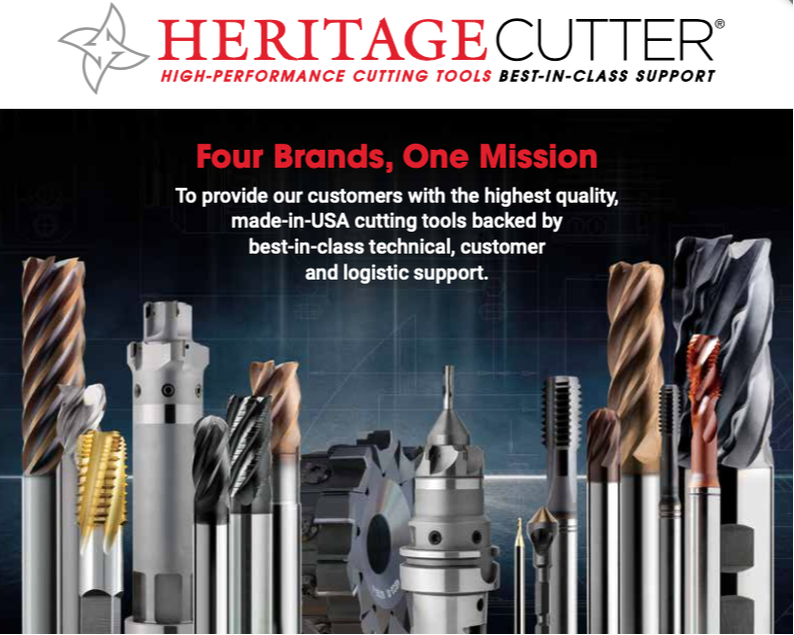
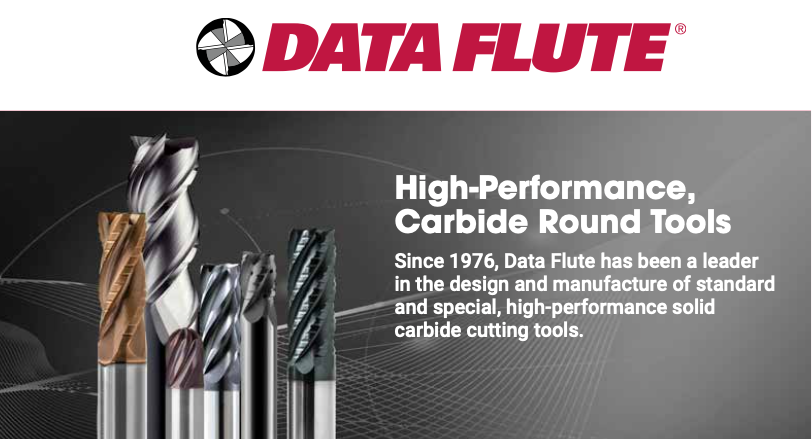
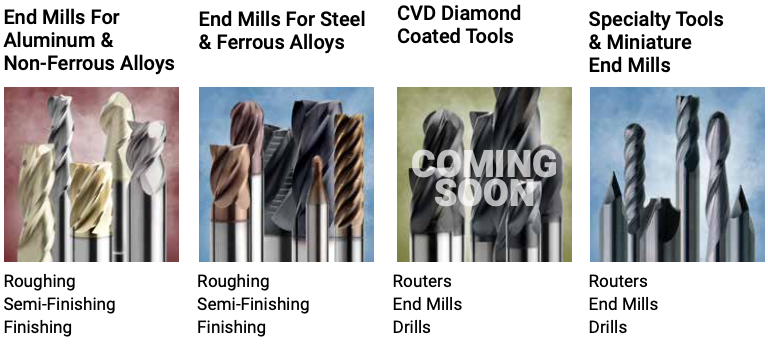

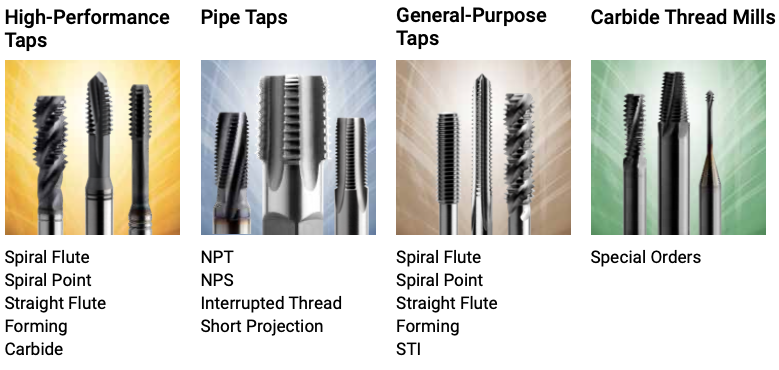
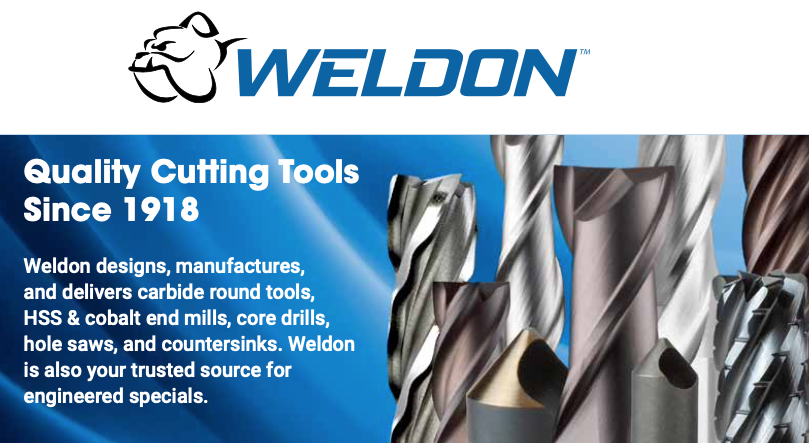
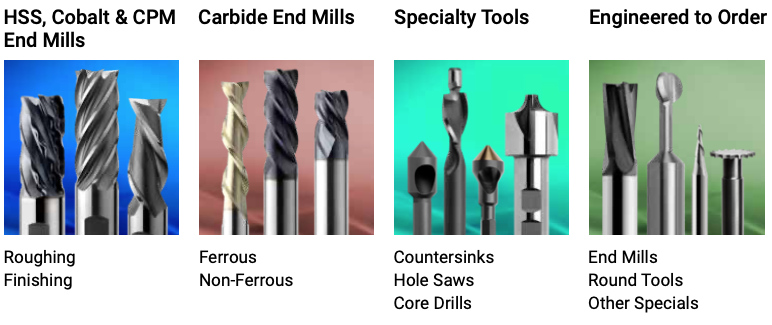

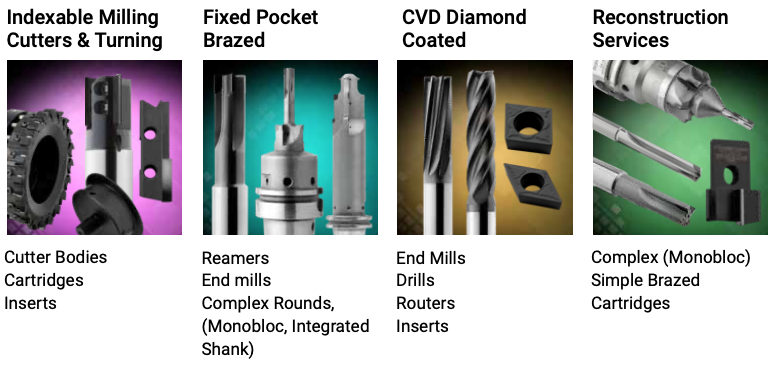
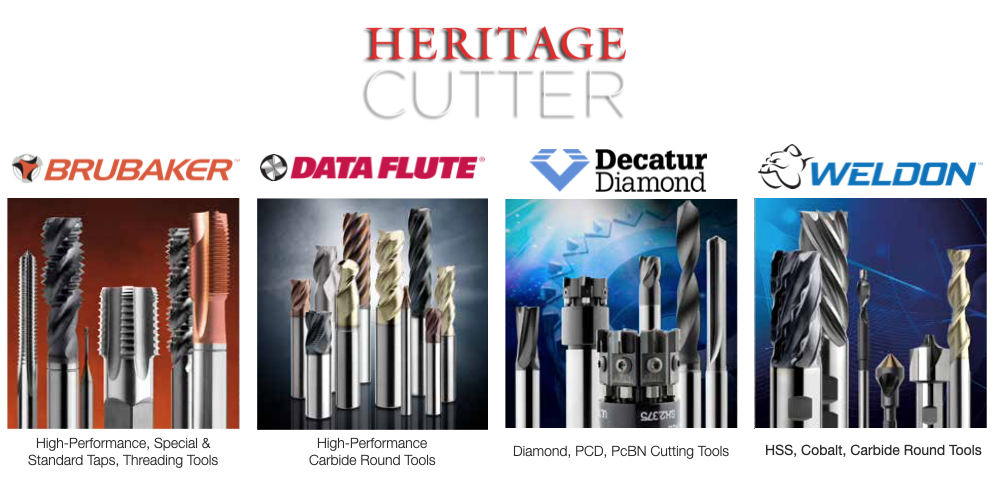
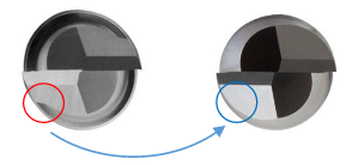
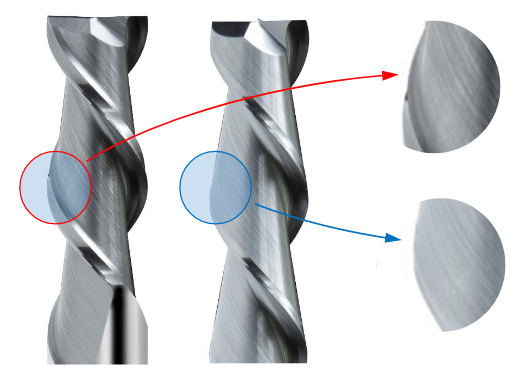
 RSS Feed
RSS Feed
